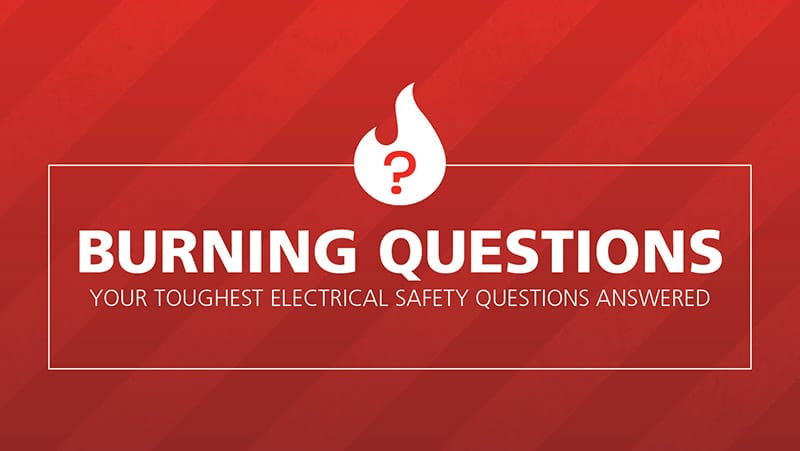Q: I hear about grounding and bonding being so important in my plant's electrical system.
I am not from an electrical background. Can you explain why this is significant?
A: The importance of grounding and bonding involves worker safety, equipment safety (protective device operation), and lightning protection.
In order to control anything, you will have a point a reference.
How would you measure 8 oz of milk unless the base isn’t at zero ounces? How would you time out intervals in a game if the clock doesn’t start at zero? In electrical circuits, “ground” means a zero reference – zero volts to be more precise. When we speak about a single phase voltage, we actually refer to that voltage relative to zero volts (+V and -V at the peaks). But that’s just the beginning…
Electrical energy will “flow” to a lower potential: zero volts or ground. It’s similar to gravity always pulling stuff to ground. So why is this SO important?
The electrical energy wants to flow to ground through the least resistive path. Generally a worker’s body offers too much resistance compared to a neatly and adequately connected grounding wire. If a circuit fails, then MOST of the energy flows through the wire and not the worker’s body. If that ground wire is absent, the electrical energy would just force itself through the worker’s body. Great for the electrical energy – bad for the body! Does the application of portable grounding close to an employee working on an overhead line now make sense?
Electricity is generated to work for us.
It is a waste of money just generating electricity to let it go to ground. Sometimes when things go wrong and the electrical energy goes out of control and heads for ground, the “police” will take them down. You would know these law-enforcing officers as protective devices.
These overcurrent protective devices (OCPD) continuously monitor the electrical network and ground. When a protective device (fuse, breaker, etc.) senses that some electrical energy is flowing to ground, it will immediately break the circuit to interrupt the flow of energy. A ground fault is very sensitive and trips early enough to result in less damage. (Think about stopping the first prisoner trying to escape his or her jail cell compared to the situation escalating unabated, and one thousand prisoners busting out the front gate!)
United we stand; divided we float!
Since the main ground point (ground grid or driven rod) will not be located at every panel, a green ground wire is provided at each disconnect, panel board, etc. This is called the power system ground. The metal frames of electrical equipment are then connected to each other – this is called bonding. United, these grounds keep us safe and allow protective devices to work. Without these, the system is considered floating – it has no reference. Our (grounding) strength lies in unity. One poor connection makes us weak – an unmonitored floating system is a dangerous system.
Finally, lightning strikes wreak havoc on electrical equipment and people. A good (to great) grounding system sends the harmful energy to ground instead of having it injure people or damage equipment.
Maintenance is necessary.
Each of these systems requires periodic inspection and repair. These will include the grounding grid, green wire grounding, portable grounds, fixed grounds, equipment bonding, ground fault circuit interrupters, overcurrent protective devices, instrument transformers linked to the ground protection network, and driven rods.
We recommend that you test ground systems periodically (between 3-5 years). There are IEEE, NETA, and NFPA (70,70E, 77, 780, etc.) guidelines on these.
Feel free to contact us for advice on care and maintenance of grounding systems.
This article aims to emphasize the ideology of always assessing the risk; even when solutions appear to be perfect, there are always caveats or rules that should be considered.
Have a question about electrical safety and standards?

